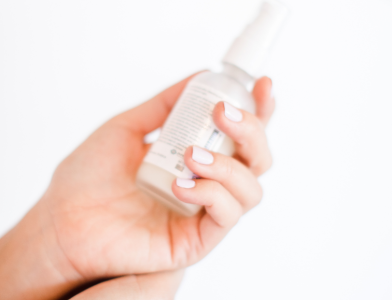In today’s fast-paced world, we’re told that stress is just a normal part of life. But what if those familiar stressors are secretly sabotaging your health, hijacking your hormones, and speeding up how quickly you age? The good news: you have the power to stop this hidden aging process with a few simple, consistent changes. Let’s uncover the surprising daily habits that chip away at your vitality – and the best ways to reclaim your energy for years to come.
How Chronic Stress Ages You From the Inside Out
Your body is hardwired to handle stressful moments, but when stress becomes chronic, it keeps the hormone cortisol elevated. Over time, high cortisol quietly disrupts your hormonal balance, acting like a slow leak on your long-term health and energy.
Signs of cortisol imbalance can include:
- Poor sleep quality – Difficulty falling and staying asleep, which drains you day after day.
- Stubborn weight gain – Stress fuels cravings for sugary foods, leading to weight gain that’s tough to lose.
- Premature aging – Elevated cortisol accelerates biological aging, showing up as wrinkles, lower energy, and higher risk for age-related issues in a process called “inflammaging.”
7 Everyday Habits That Quietly Trigger Stress and Aging
The first step in taking back control of your health is recognizing small daily actions that raise your stress and cortisol levels. Here’s what you should watch for:
- Skipping breakfast or relying only on coffee – Starting your day without real nourishment spikes cortisol and blood sugar, setting off cravings and energy crashes. Research confirms that skipping breakfast raises cortisol until well past noon.
- Late-night blue light exposure – Doom scrolling or binge-watching before bed suppresses melatonin while keeping cortisol high, making restful sleep nearly impossible.
- Synthetic fragrances in candles, perfumes, and cleaners – Many popular scents contain chemicals linked to hormone disruption and increased cortisol, subtly impacting your skin and energy.
- Overdoing high-intensity exercise – While exercise is essential, too much HIIT can leave cortisol elevated for hours, potentially draining your body’s reserves.
- Drinking from plastic bottles – Plastics may contain phthalates and bisphenols, which can disrupt hormones and add to your body’s stress burden.
Small Shifts, Big Results: How to Calm Stress and Support Healthy Aging
Empowering yourself with knowledge is the first step, but taking action is what truly transforms your life. Here are sustainable habits that can help:
- Eat balanced meals every 3-4 hours – Prioritize protein, healthy fats, and fiber to keep blood sugar and cortisol stable.
- Get morning sunlight – Step outside before 10 a.m. to help reset your body’s circadian rhythm and balance hormones naturally.
- Filter your water – Use a high-quality water filter to reduce exposure to hidden toxins and endocrine disruptors.
- Create a calming nighttime routine – Turn off screens, enjoy herbal tea, stretch, journal, or meditate to help your nervous system unwind.
- Practice mindfulness, even for 5 minutes – Simple deep breathing or guided relaxation can lower cortisol and reset your focus.
- Monotask instead of multitasking – Focus on one thing at a time for less stress and greater accomplishment.
- Connect with an integrative medical provider – Personalized support and testing can identify your unique stress triggers and outline targeted solutions.
You Have the Power to Reclaim Your Energy
These small, consistent practices are your roadmap to slowing the hidden process of inflammaging – so you can feel vibrant, energetic, and confident as you age. When you recognize everyday stress triggers and make mindful swaps, you empower your body to thrive.
If you found this guide helpful, be sure to come back for more tips on living a low-toxin lifestyle that supports your health, hormones, and happiness.
References
- Shih YW, Hung CS, Huang CC, Chou KR, Niu SF, Chan S, Tsai HT. The Association Between Smartphone Use and Breast Cancer Risk Among Taiwanese Women: A Case-Control Study. Cancer Manag Res. 2020 Oct 29;12:10799-10807. doi: 10.2147/CMAR.S267415. PMID: 33149685; PMCID: PMC7605549.
- Fekedulegn D, Innes K, Andrew ME, Tinney-Zara C, Charles LE, Allison P, Violanti JM, Knox SS. Sleep quality and the cortisol awakening response (CAR) among law enforcement officers: The moderating role of leisure time physical activity. Psychoneuroendocrinology. 2018 Sep;95:158-169. doi: 10.1016/j.psyneuen.2018.05.034. Epub 2018 May 28. PMID: 29864672; PMCID: PMC6401560.
- Fekedulegn D, Innes K, Andrew ME, Tinney-Zara C, Charles LE, Allison P, Violanti JM, Knox SS. Sleep quality and the cortisol awakening response (CAR) among law enforcement officers: The moderating role of leisure time physical activity. Psychoneuroendocrinology. 2018 Sep;95:158-169. doi: 10.1016/j.psyneuen.2018.05.034. Epub 2018 May 28. PMID: 29864672; PMCID: PMC6401560.
- Hewagalamulage SD, Lee TK, Clarke IJ, Henry BA. Stress, cortisol, and obesity: a role for cortisol responsiveness in identifying individuals prone to obesity. Domest Anim Endocrinol. 2016 Jul;56 Suppl:S112-20. doi: 10.1016/j.domaniend.2016.03.004. Epub 2016 Mar 31. PMID: 27345309.
- Yegorov YE, Poznyak AV, Nikiforov NG, Sobenin IA, Orekhov AN. The Link between Chronic Stress and Accelerated Aging. Biomedicines. 2020 Jul 7;8(7):198. doi: 10.3390/biomedicines8070198. PMID: 32645916; PMCID: PMC7400286.
- Witbracht M, Keim NL, Forester S, Widaman A, Laugero K. Female breakfast skippers display a disrupted cortisol rhythm and elevated blood pressure. Physiol Behav. 2015 Mar 1;140:215-21. doi: 10.1016/j.physbeh.2014.12.044. Epub 2014 Dec 27. PMID: 25545767.
- Faraut B, Andrillon T, Drogou C, Gauriau C, Dubois A, Servonnet A, Van Beers P, Guillard M, Gomez-Merino D, Sauvet F, Chennaoui M, Léger D. Daytime Exposure to Blue-Enriched Light Counters the Effects of Sleep Restriction on Cortisol, Testosterone, Alpha-Amylase and Executive Processes. Front Neurosci. 2020 Jan 8;13:1366. doi: 10.3389/fnins.2019.01366. PMID: 31998056; PMCID: PMC6961531.
- Schmid SR, Höhn C, Bothe K, Plamberger CP, Angerer M, Pletzer B, Hoedlmoser K. How Smart Is It to Go to Bed with the Phone? The Impact of Short-Wavelength Light and Affective States on Sleep and Circadian Rhythms. Clocks Sleep. 2021 Oct 28;3(4):558-580. doi: 10.3390/clockssleep3040040. PMID: 34842631; PMCID: PMC8628671.
- Kim JH, Lee J, Moon HB, Park J, Choi K, Kim SK, Kim S. Association of phthalate exposures with urinary free cortisol and 8-hydroxy-2′-deoxyguanosine in early childhood. Sci Total Environ. 2018 Jun 15;627:506-513. doi: 10.1016/j.scitotenv.2018.01.125. Epub 2018 Feb 3. PMID: 29426173.
- Dote-Montero M, Carneiro-Barrera A, Martinez-Vizcaino V, Ruiz JR, Amaro-Gahete FJ. Acute effect of HIIT on testosterone and cortisol levels in healthy individuals: A systematic review and meta-analysis. Scand J Med Sci Sports. 2021 Sep;31(9):1722-1744. doi: 10.1111/sms.13999. Epub 2021 Jun 15. PMID: 34022085.
- Paoli A, Tinsley G, Bianco A, Moro T. The Influence of Meal Frequency and Timing on Health in Humans: The Role of Fasting. Nutrients. 2019 Mar 28;11(4):719. doi: 10.3390/nu11040719. PMID: 30925707; PMCID: PMC6520689.
- Jung CM, Khalsa SB, Scheer FA, Cajochen C, Lockley SW, Czeisler CA, Wright KP Jr. Acute effects of bright light exposure on cortisol levels. J Biol Rhythms. 2010 Jun;25(3):208-16. doi: 10.1177/0748730410368413. PMID: 20484692; PMCID: PMC3686562.
- Katibi KK, Yunos KF, Che Man H, Aris AZ, Bin Mohd Nor MZ, Binti Azis RS. Recent Advances in the Rejection of Endocrine-Disrupting Compounds from Water Using Membrane and Membrane Bioreactor Technologies: A Review. Polymers (Basel). 2021 Jan 27;13(3):392. doi: 10.3390/polym13030392. PMID: 33513670; PMCID: PMC7865700.
- Mindell JA, Leichman ES, Lee C, Williamson AA, Walters RM. Implementation of a nightly bedtime routine: How quickly do things improve? Infant Behav Dev. 2017 Nov;49:220-227. doi: 10.1016/j.infbeh.2017.09.013. Epub 2017 Oct 3. PMID: 28985580; PMCID: PMC6587179.
- Turakitwanakan W, Mekseepralard C, Busarakumtragul P. Effects of mindfulness meditation on serum cortisol of medical students. J Med Assoc Thai. 2013 Jan;96 Suppl 1:S90-5. PMID: 23724462.
- Wetherell MA, Craw O, Smith K, Smith MA. Psychobiological responses to critically evaluated multitasking. Neurobiol Stress. 2017 May 10;7:68-73. doi: 10.1016/j.ynstr.2017.05.002. PMID: 28540348; PMCID: PMC5432679.



